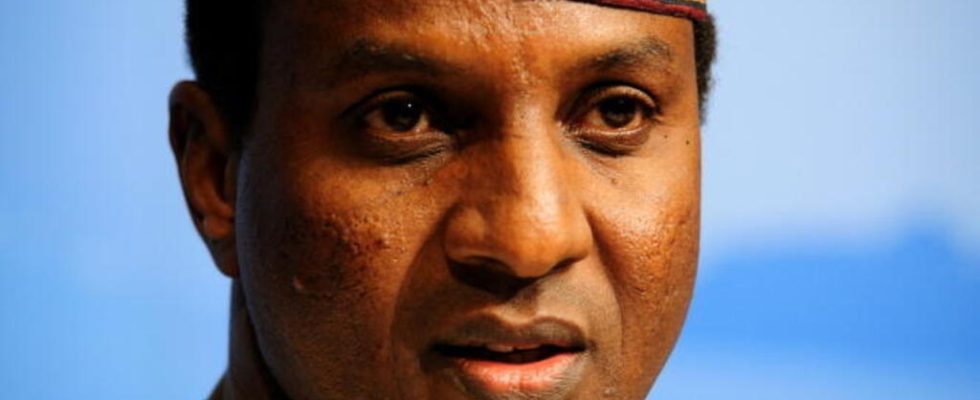In Niger, six months after the coup d’état, the country is going through a difficult period economically due to ECOWAS sanctions and the cessation of international aid. Niger is no longer able to repay some of its debts and is accumulating payment arrears. The situation is also deteriorating on a security level. To try to find new partners, Ali Mahamane Lamine Zeine, the Nigerien Prime Minister, recently undertook a long diplomatic tour which notably took him to Russia and Iran.
4 mins
In Russia, where he visited before his stopover in Iran, Mr. Zeine agreed to “ intensify » its military cooperation with the Nigerien army, confronted with jihadist groups.
Read alsoNiger announces intensification of its military cooperation with Russia
Concerning the Iranian stopover, in the middle of the week, Tehran is in the middle of a charm offensive in the Sahel and has been strengthening, for two years, its cooperation with the juntas in Mali and Burkina, recalled on our antenna Hamid Talebian, researcher at the German Institute for Global and Area Studies and specialist in Iran’s policy in Africa, joined by Sébastien Nemeth. This process began under the presidency of Ebrahim Raïssi, since the summer of 2021. He visiting Kenya, Zimbabwe and Uganda in 2023.
Iran has been one of the most heavily sanctioned countries in the world for decades, while Niger’s economy is affected by heavy economic and financial sanctions imposed by the Economic Community of West African States (ECOWAS). ), after the military coup that overthrew elected president Mohamed Bazoum. “Iran is isolated on the international scene, recalls Hamid Talebian. A bit like during the period when Mahmoud Ahmadinedjad ruled the country. At that time, we saw the same diplomatic offensive on the African continent, especially sub-Saharan Africa and West Africa, between 2008 and 2012.”
Read alsoSix months after the coup in Niger, the economy “shows remarkable resilience”
Against France
In recent months, Iran has affirmed its support for leaders who took power in a coup d’état in Mali, Burkina Faso and Niger. Its president, Ebrahim Raïssi, had “ praised ” in September ” of the resistance of these African countries ” It front of ” European hegemonic policies » and « colonialism “.
Iranian Vice President Mohammad Mokhber, receiving Ali Mahamane Lamine Zeine on Wednesday, welcomed the “ success » from the former French colony to “ having established an independent government » during the coup d’état. “One of the main reasons explaining the desire of the Iranians to come closer to the Sahel, to discuss with these increasingly authoritarian regimes or those resulting from coups d’état, is this opportunity for those in power to initiate a process of alliances against Western countries and in particular France, underlines Hamid Talebian. When you follow the Iranian media, you see that they deal a lot with the evolution of relations between Paris and Mali and Niger. They closely followed the withdrawal of the French army, describing this process as a humiliation of the colonizer, as a new end to colonization. So all this provides an opportunity to accelerate the dynamics of alliances against the West. Tehran is therefore seeking to emerge from its isolation and gain credibility on the world stage. »
Read alsoIranian President Ebrahim Raïssi continues his diplomatic offensive in Africa
Interests as economic, political and religious
Several agreements have been signed in the areas of energy, health and finance.
“ Iran is moving closer to Niger because the country has nearly 8% of the world’s uranium reserves. Tehran wants access to these resources for its own nuclear program. For that, the regime needs influence, needs a stronger relationship, needs to support this anti-Western rhetoric of the junta. And in general, it is part of the strategy of circumventing international sanctions. Iran sees that they are not about to be lifted…
There is also a diplomatic interest in getting closer to African states, in particular to obtain votes during votes at the United Nations. Closer ties with the continent can potentially help in international forums…
Finally, Iran has a religious agenda. Niger has several million Shiites, even if its dogma is not necessarily the same as in Tehran. But Tehran sees there a potential for the proselytism established in the region. We saw it in Nigeria. Before the Iranian Revolution of 1979, there were no Shiites in the country. Today, at least 2 to 3 million people have converted. » Faithful people that the Iranian regime may want to exploit, concludes the researcher.
(and with AFP)
